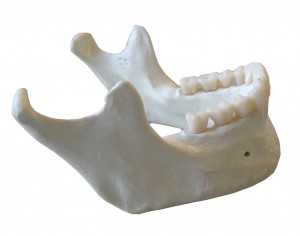 The Temporomandibular Joint (TMJ or ‘jaw joint’) is the most frequently used joint in the body, we use it to eat, smile, talk and even breathe therefore it’s not a surprise that it is common for things to go wrong with it. In fact, approximately 1 in 4 people are estimated to have symptoms associated with TMD (25%) yet only 1 in 20 actually seek treatment (5%).
The Temporomandibular Joint (TMJ or ‘jaw joint’) is the most frequently used joint in the body, we use it to eat, smile, talk and even breathe therefore it’s not a surprise that it is common for things to go wrong with it. In fact, approximately 1 in 4 people are estimated to have symptoms associated with TMD (25%) yet only 1 in 20 actually seek treatment (5%).
When things go wrong with your TMJ it is known as Temporomandibular Disorder (TMD).
Common Symptoms of TMD
TMD does not always have to be associated with jaw pain, symptoms can and often do include:
- Clicking / Popping
- Grinding
- Inability to clench the jaw
- Limited opening
- Headaches / dizziness
- Tinnitus / ringing in the ears
- Ear Pain
- Neck pain
TMJ Dysfunction
TMJ dysfunction can be diagnosed by your TMJ physiotherapist, a physiotherapist with advanced training in jaw dysfunction. It may also be recommended that you see your dentist or oral maxillofacial surgeon in some cases, they may recommend dental x-rays, CT scan or MRI to further investigate your condition.
TMD is a clinical movement diagnosis, the common presentations of TMJ dysfunction may be classified into three clinical diagnostic groups:
- Jaw muscle disorder characterised by painful movement.
- Articular disc displacement.
- Arthralgia or arthritis.
TMJ Assessment
During your TMJ examination, your TMJ Physiotherapist will assess your:
- jaw range of motion,
- muscle tension and length,
- TMJ co-ordination and movement pattern.
- Other associated areas such as the neck and shoulder and posture to establish any links with your current symptoms.
TMD Treatment
After your TMJ assessment your physiotherapist will discuss your clinical diagnosis and treatment plan with you. Treatment may include advice and information regarding management or symptoms, exercises to correct mechanical dysfunctions and improve function alongside manual therapy techniques to assist in improving muscle and joint function. They can also assist in referring you on to the most relevant health professional suitable for your TMJ condition for further investigations should the need arise.
If you are suffering with jaw pain, we strongly recommend seeking professional advice before it develops into a more serious condition. Contact us today for a free phone consultation.

